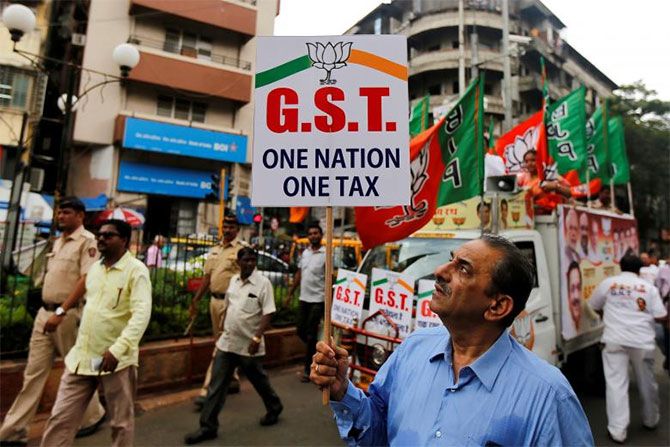Compliance requirements, valuation, input tax credit transfers are likely to lead to tax litigation, says Sayan Ghosal.

Two months after coming into effect, India’s new indirect tax has already begun making its rounds in the courtrooms.
Tax professionals and corporate lawyers are gearing up for a swathe of increased litigation, given the large influence that the goods and services tax (GST) has on economic participants.
“The GST has caused and continues to have some teething problems as to its applicability and compliance requirements.
The concerns arising from these issues are reflected in the various writ petitions filed in high courts across the country,” says Nishant Shah, partner, Economic Laws Practice.
According to experts, several issues related to enhanced compliance requirements, valuation, classification and the availability and transfer of input tax credit are expected to take centrestage in tax litigation in the days to come.
A recently filed case in the Rajasthan high court (Rajasthan Tax Consultants Association v Union of India) exemplified some of these issues of compliance, considering the GST’s digitised framework and India’s challenges in adapting to technology.
The association’s plea has highlighted several technical glitches faced by taxpayers in meeting these new requirements, as well as other concerns on incomplete utility forms, charging of interest, penalties, composition windows and the retrospective effect of waiver of late fees.
The classification, applicable rate and valuation of supplies for the purposes of taxation are expected to be other contentious issues.
Experts say the multi-slab nature of the Indian GST system will undoubtedly have the potential for rate arbitrage and differences in opinions between assessees and the tax authorities.
The availability of transition and input tax credits, considered to be key to the effective functioning of the indirect tax system, is also likely to be taken to court.
“Different slab rates have been fixed for supply of goods and services. Valuation of goods is mostly on the basis of Customs valuation rules.
Both are prone to litigation. The truncated grant of transition credit (that can be used as input tax credit under the new system) is another issue that is likely to be challenged in the courts,” says V Lakshmikumaran, managing partner, Lakshmikumaran & Sridharan.
The Delhi HC and Hyderabad HC are already hearing petitions on the applicable rates set on sanitary napkins (12 per cent) and limestone (28 per cent).
“The mere fixation of rates may be viewed by the courts as an economic policy decision.
However, when other fundamentals come into play, the judiciary could take a more proactive role,” says N Meyyappan, partner, Nishith Desai Associates.
Another pending case in the Delhi HC is on the issue of availability of transition credits for the clean energy cess paid for stocks of coal under the earlier system (vide Finance Act, 2010) and the requirement for re-payment of compensation cess (under GST rules) on the same stock.
A similar issue on the validity of the government’s move to recover previously provided CenVAT credit on stocks of imported gold dore bars (Rule 44A of the Central GST Rules) is also being challenged in the same high court.
After finding prima facie merit in both the petitions, the court has given the affected parties interim relief while listing the matters for further consideration.
“Even interim orders staying adverse actions by the department may have larger implications. There are still many issues that are yet to reach the courts,” notes Meyyappan.
Yet another petition in the Delhi HC involves issues of cross-applicability of input credits within the integrated GST, central GST and state GST laws.
There are concerns that digital transactions that are charged Integrated GST, yet provide supplies which attract Central GST and state GST, will be unable to claim these input tax credits to offset their total tax burden, leading to double taxation.
Experts also feel certain supplies, especially in the digital space, are also likely to be marred by litigation and differences of opinion. Digital assignments, cloud-to-cloud transactions and the categorisation of such transactions as goods or services may eventually reach the courts, once the tax department takes a more concrete stance.
“There is still significant ambiguity with the classification and the rate of taxation of some supplies,” adds Meyyappan.
According to Shah, the GST regime is also likely to see some amount of commercial litigation between business entities.
“This will be novel to the taxation arena and will be on account of the requirement for invoice to invoice matching in order to ensure availability of credit as required by the GST law,” notes Shah.
| A snapshot of cases in the dock |
|
Photograph: Shailesh Andrade/Reuters












 © 2025
© 2025